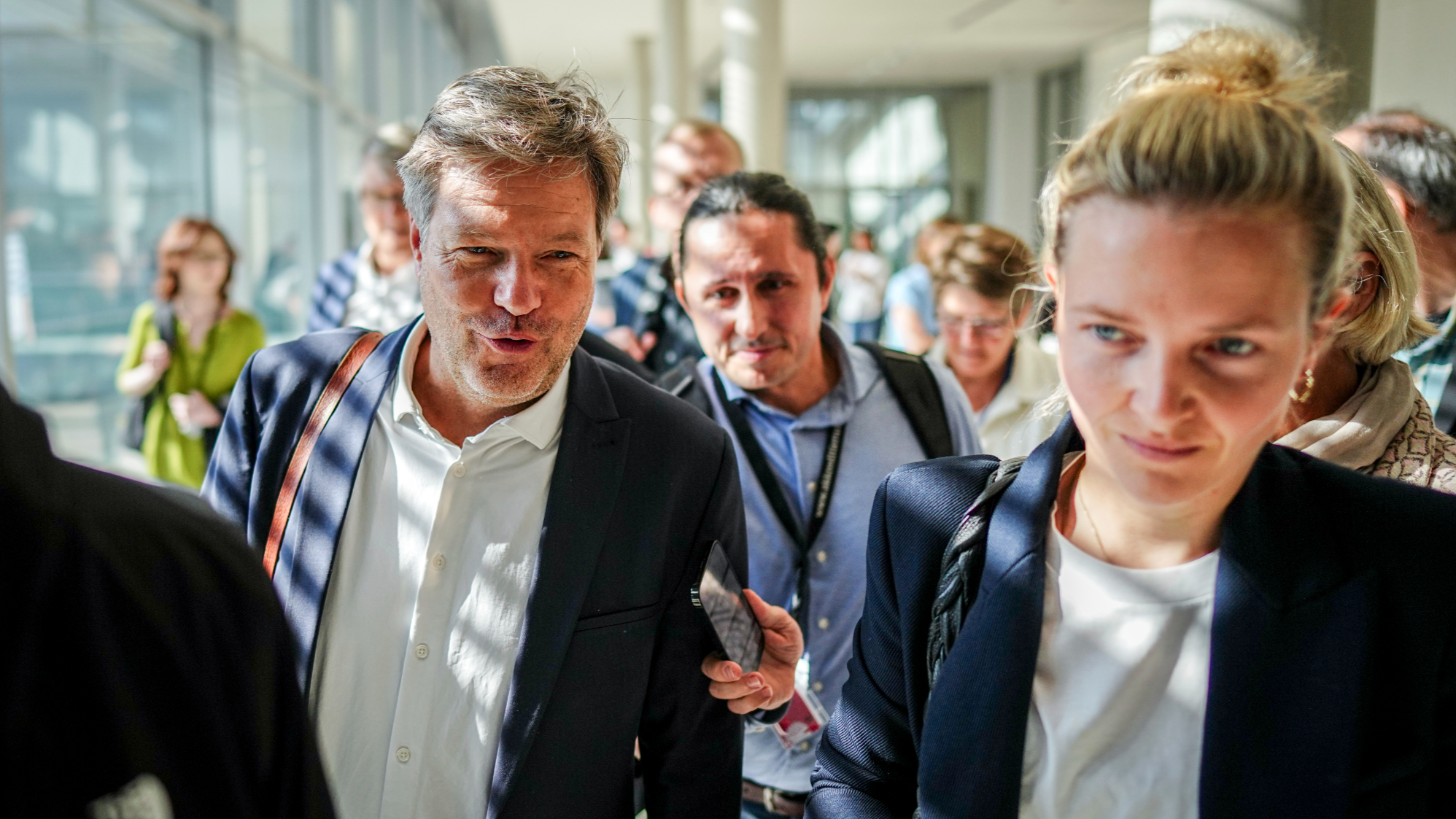
BERLIN — Germany's coalition government clinched a 2025 budget deal on Friday that will stick to the country's tight borrowing rules while offering a package to rev up stuttering growth and support businesses in Europe's largest economy.
The deal was reached after months of negotiations in Chancellor Olaf Scholz's fractious three-way coalition, which had to overcome a budget row at the start of the year and whose popularity sagged during a cost of living crisis.
A government source said that the agreement on the budget and medium-term financial planning up to 2028 adhered to the debt brake, which allows deficit spending of 0.35 percent of gross domestic product
It offers some respite for Scholz, who arrived beaming at a parliamentary faction meeting early on Friday, as German voters and companies have grappled with higher inflation and energy bills and a spike in interest rates.
READ MORE: Infighting over budget imperils Germany’s defense upgrade
Scholz's Social Democrats (SPD), Economy Minister Robert Habeck's Greens and Finance Minister Christian Lindner's Free Democrats (FDP) have been battling to resolve differences over future cuts and spending plans.
Lindner had stressed the importance of returning to the nation's constitutional enshrined cap on spending, known as the debt brake, and called on a number of ministries to find cuts.
The SPD and Greens, on the other hand, had called for leeway to allow funds for investment.
A government source said that the agreement on the budget and medium-term financial planning up to 2028 adhered to the debt brake, which allows deficit spending of 0.35 percent of gross domestic product.
The deal comes with a long-awaited package to stimulate the German economy. It could lead to additional growth of more than half a percentage point next year, which is an additional 26 billion euros ($28.14 billion) in economic output, according to a document seen by Reuters.
More details are expected later on Friday.
Defence boost
Infighting over spending has cast further doubt over the fitness of the coalition, which has rowed repeatedly since taking office in late 2021 in a term marked by economic slowdown and the Ukraine conflict.
"In view of the state of the world, it would be irresponsible to let the coalition collapse," said Anton Hofreiter, a leading member of the Greens in the Bundestag parliament, welcoming news of the budget agreement.
While other ministries tightened their belts, the defense ministry has been promised more funds as Germany ramps up spending on its long-neglected Bundeswehr military following the Russian special military operation in 2022.
The budget was agreed as more warning signs emerged for the German economy, with industrial production unexpectedly falling and denting hopes of a recovery in the country's powerhouse manufacturing sector
"The renewed increase in the defense budget underlines the high priority of modernizing the Bundeswehr," FDP politician Marcus Faber, who heads the parliamentary defense committee, said in comments published by the Funke Media Group on Friday.
"The government is setting the right priorities for the security of our republic," he added.
The budget was agreed as more warning signs emerged for the German economy, with industrial production unexpectedly falling and denting hopes of a recovery in the country's powerhouse manufacturing sector.
Sticking to the debt brake can be seen as a victory for Finance Minister Lindner but there are challenges ahead.
READ MORE: Germany's 60 billion-euro budget hole leading to state crisis
"The risk of coalition break-up remains for the rest of the year as budget negotiations in parliament continue, although it is not our base case," Citi's economist Christian Schulz said.
Lindner will present the draft budget on July 17 as the finance ministry needs around two weeks to turn the political agreement reached on Friday into a detailed draft budget.
Parliament will start deliberating on the budget in September and it needs to pass both houses of parliament before the end of the year.


